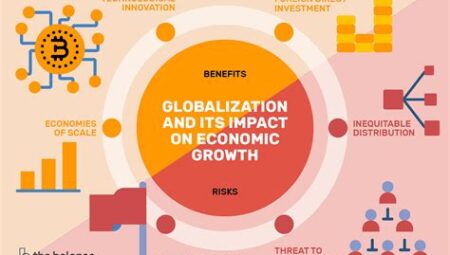In today’s rapidly evolving healthcare industry, the power of big data analytics is revolutionizing the way we approach patient care, clinical decision-making, and healthcare operations. With the vast amount of data available, healthcare professionals are now able to enhance healthcare outcomes, improve patient care, and optimize operations through data-driven insights. From early disease detection using predictive analytics to personalized medicine driven by big data analysis, the potential for leveraging data in healthcare is endless.
In this blog post, we will explore the impact of big data analytics in the healthcare industry, including its role in cost reduction, research and development, and improving population health. We will also address the important considerations of privacy and security challenges in healthcare data analytics, and how these can be effectively managed. Join us as we delve into the transformative power of big data analytics in shaping the future of healthcare.
Table of Contents
Enhancing healthcare outcomes through big data
Big data has the potential to revolutionize the healthcare industry by providing valuable insights that can improve patient outcomes and overall healthcare delivery. By leveraging advanced analytics and data-driven technologies, healthcare providers can gain a deeper understanding of patient populations, identify trends, and make more informed decisions to enhance the quality of care.
With big data analytics, healthcare professionals can identify high-risk patients and intervene early to prevent serious health issues. This proactive approach helps in reducing hospital readmissions, improving patient satisfaction, and ultimately leading to better healthcare outcomes. By analyzing large volumes of healthcare data, providers can also optimize treatment plans, identify opportunities for preventive care, and personalize healthcare interventions based on individual patient needs.
Moreover, big data can be utilized to streamline operational processes within healthcare organizations, leading to cost efficiencies and improved resource allocation. By understanding patient flow, resource utilization, and operational bottleneurs, healthcare providers can improve the overall quality of care while minimizing unnecessary expenses. This enhanced operational efficiency ultimately translates to better healthcare outcomes for patients.
Overall, the integration of big data in healthcare holds tremendous potential for enhancing patient care, optimizing healthcare operations, and driving improved healthcare outcomes. By harnessing the power of data analytics, the healthcare industry can move towards a more personalized, proactive, and effective approach to delivering care.
Improving patient care with data-driven insights
Healthcare professionals have long relied on their expertise and experience to make critical decisions that directly impact patient care. However, with the advent of big data analytics, the healthcare industry is undergoing a transformation that is revolutionizing the way patient care is delivered. Data-driven insights are enabling healthcare providers to make evidence-based decisions, resulting in improved patient outcomes and overall quality of care.
By leveraging big data analytics, healthcare organizations can gain valuable insights into patient populations, treatment efficacy, and disease patterns. These insights enable providers to identify opportunities for improvement and tailor care plans to individual patients, ultimately leading to more effective and personalized care.
Furthermore, the use of predictive analytics allows healthcare providers to anticipate patient needs and intervene proactively, reducing the likelihood of adverse events and complications. This proactive approach to patient care not only improves outcomes but also reduces healthcare costs by preventing unnecessary hospitalizations and treatments.
In conclusion, the integration of data-driven insights into patient care has the potential to revolutionize the healthcare industry. By leveraging big data analytics and predictive modeling, healthcare providers can enhance the quality of care, improve patient outcomes, and achieve cost savings, ultimately leading to a more efficient and effective healthcare system.
Leveraging big data to optimize healthcare operations
In today’s fast-paced healthcare environment, leveraging big data has become crucial in optimizing healthcare operations. By harnessing the power of data analytics, healthcare organizations can streamline their processes, improve efficiency, and ultimately enhance patient care.
One of the key areas where big data can make a significant impact is in resource allocation. Through sophisticated data analysis, healthcare providers can better understand patient demand, optimize staffing levels, and allocate resources more effectively, ultimately leading to cost savings and improved patient outcomes.
Additionally, big data can play a crucial role in predictive analytics for healthcare operations. By analyzing large volumes of historical and real-time data, healthcare organizations can identify trends, forecast demand, and proactively address potential operational issues, leading to smoother operations and increased patient satisfaction.
Moreover, leveraging big data can also enable healthcare organizations to make data-driven decisions in areas such as supply chain management, inventory control, and equipment maintenance. By having access to real-time insights and trends, healthcare providers can optimize their operations, reduce waste, and ensure that the right resources are in place to meet patient needs.
Predictive analytics for early disease detection
Utilizing predictive analytics in the field of healthcare has revolutionized the way early disease detection is conducted. By analyzing large sets of data, healthcare professionals can now predict the likelihood of a patient developing a certain disease, allowing for early intervention and treatment.
The use of big data in predictive analytics enables healthcare providers to identify patterns and trends, which can lead to the early detection of diseases such as diabetes, cancer, and heart disease. This proactive approach to healthcare can greatly improve patient outcomes and reduce the burden on the healthcare system.
By leveraging advanced data-driven insights, healthcare organizations can develop personalized screening programs and interventions, tailored to individual patient profiles. This targeted approach allows for early disease detection and prevention, ultimately leading to better health outcomes for patients.
With the help of predictive analytics, healthcare professionals can shift their focus from reactive to proactive care, identifying potential health risks early on and taking necessary measures to mitigate them. This approach not only improves patient care but also contributes to significant cost savings for the healthcare industry.
Personalized medicine driven by big data analysis
In today’s healthcare landscape, the concept of personalized medicine has gained significant traction. The ability to tailor medical treatment to an individual’s unique genetic makeup, lifestyle, and environment holds immense promise for improving patient outcomes. One of the key driving forces behind the advancement of personalized medicine is the big data analysis.
By harnessing vast amounts of healthcare data, including genetic information, clinical records, and patient-reported outcomes, healthcare providers and researchers can gain unprecedented insights into the underlying mechanisms of diseases. This wealth of information enables the identification of personalized treatment plans that are more targeted and effective, leading to better patient outcomes and improved quality of care.
Moreover, big data analysis plays a crucial role in predictive modeling for disease risk assessment, early detection, and prevention strategies. By leveraging advanced analytics and machine learning algorithms, healthcare professionals can proactively identify individuals who are at higher risk for certain conditions and intervene before the onset of symptoms, ultimately reducing the burden of disease and healthcare costs.
Furthermore, the integration of big data analytics in personalized medicine is fueling advancements in genomic research and drug development. By analyzing large-scale genomic data sets, researchers can uncover novel biomarkers, therapeutic targets, and molecular pathways, paving the way for the development of more precise and effective treatment options tailored to an individual’s genetic profile.
Utilizing data analytics for healthcare cost reduction
Data analytics has become an integral part of the healthcare industry, offering immense potential to reduce costs and improve efficiency across various aspects of patient care and operations. By leveraging big data analysis, healthcare organizations can gain valuable insights into their cost structure, identify areas for optimization, and implement targeted strategies for cost reduction.
One of the key ways in which data analytics can contribute to healthcare cost reduction is through the identification of inefficiencies in processes and resource allocation. By analyzing large volumes of data, healthcare providers can pinpoint areas where resources are being underutilized or where unnecessary expenses are being incurred, allowing them to make informed decisions to streamline operations and optimize costs.
Additionally, data analytics can help healthcare organizations identify high-cost patients and forecast their future care needs, enabling proactive interventions and preventive care measures that can ultimately reduce long-term costs. By leveraging predictive analytics, providers can identify patients at risk for high-cost interventions and develop personalized care plans to address their needs in a cost-effective manner.
Furthermore, data analytics can play a crucial role in optimizing supply chain management in healthcare, ensuring efficient inventory management, reducing waste, and negotiating favorable contracts with suppliers. By analyzing data on supply chain operations, healthcare organizations can identify cost-saving opportunities and drive down the overall cost of delivering care.
Enhanced clinical decision-making with big data
With the advancements in big data technology, healthcare providers and practitioners are now able to enhance their clinical decision-making processes. By leveraging vast amounts of patient data, including medical history, treatment outcomes, and demographic information, healthcare professionals are now able to make more informed decisions for their patients.
Utilizing data analytics allows for more accurate and personalized treatment plans, as well as the ability to predict potential health risks in patients. This not only improves the quality of care but also leads to better patient outcomes in the long run.
Furthermore, by analyzing large sets of data, healthcare providers can identify patterns and trends that may not have been apparent before. This can lead to early detection of diseases and the ability to intervene before a condition worsens, ultimately improving patient prognosis.
In conclusion, the use of big data in healthcare has revolutionized the way clinical decisions are made. By harnessing the power of data analytics, healthcare professionals are able to provide more personalized and effective care, leading to enhanced clinical decision-making and ultimately, improved patient outcomes.
Leveraging big data for healthcare research and development
In today’s rapidly evolving healthcare landscape, the role of big data in research and development cannot be overstated. The ability to collect and analyze large volumes of healthcare data has revolutionized the way medical research is conducted, leading to breakthroughs in disease detection, treatment, and prevention.
By harnessing the power of big data analytics, researchers and healthcare professionals are able to gain valuable insights into patient outcomes, treatment effectiveness, and population health trends. This wealth of information allows for more targeted and personalized approaches to healthcare, ultimately leading to improved patient outcomes and reduced healthcare costs.
Furthermore, big data has played a critical role in accelerating drug discovery and development. Through advanced data analytics and predictive modeling, researchers are able to identify potential drug targets, optimize clinical trial design, and streamline the drug development process. This has led to the rapid emergence of innovative therapeutics that have the potential to transform the treatment of various diseases.
As technology continues to advance, the role of big data in healthcare research and development will only continue to grow. With the potential to drive precision medicine, optimize clinical decision-making, and improve population health, the possibilities are truly endless.
Improving population health through data analysis
One of the most significant benefits of data analysis in the healthcare industry is the potential to improve population health. By analyzing large sets of data, healthcare professionals can identify trends and patterns that can help in understanding and addressing public health issues. This can involve looking at factors such as demographics, lifestyle choices, and environmental factors that contribute to the health of a specific population. With this information, healthcare providers can develop tailored interventions and treatments to improve the overall health of a community.
Furthermore, data analysis enables healthcare organizations to track and monitor public health trends over time. By analyzing historical data, public health professionals can gain insights into the prevalence of certain diseases or conditions within a population, and how they have evolved over time. This can help in the allocation of resources and the development of preventive measures to address emerging health issues.
Moreover, data-driven decision-making can lead to the development of targeted public health campaigns that are designed to address specific health concerns within a population. By identifying high-risk groups and tailoring interventions to their specific needs, healthcare organizations can effectively reach the individuals who are most in need of support and resources, ultimately leading to improved health outcomes.
In conclusion, the use of data analysis in healthcare has the potential to significantly impact population health. By utilizing data to gain insights into public health trends and develop targeted interventions, healthcare organizations can work towards improving the overall health of communities.
Addressing privacy and security challenges in healthcare data analytics
Privacy and security challenges in healthcare data analytics are critical issues that need to be addressed with utmost care and attention. The sensitive nature of medical data makes it vulnerable to potential breaches and unauthorized access, posing significant risks to patient confidentiality and trust. As the healthcare industry increasingly relies on data analytics to drive insights and decision-making, it is crucial to implement robust measures to safeguard patient information.
In recent years, there have been numerous instances of data breaches and cyberattacks targeting healthcare organizations, resulting in the exposure of confidential patient records and sensitive information. These incidents highlight the pressing need for stringent privacy and security protocols to protect healthcare data from unauthorized access and malicious intent. The ramifications of compromised data in healthcare can have far-reaching consequences, affecting not only individual patients but also the overall integrity of the healthcare system.
With the proliferation of digital health records and interconnected systems, the complexity of managing privacy and security in healthcare data analytics has escalated. Healthcare organizations are tasked with navigating stringent regulatory requirements, such as the Health Insurance Portability and Accountability Act (HIPAA), to ensure compliance and mitigate privacy risks. Additionally, the integration of diverse data sources and the use of advanced analytics tools necessitate a comprehensive approach to data protection and risk management.
Addressing privacy and security challenges in healthcare data analytics requires a multidimensional strategy that encompasses technological, organizational, and regulatory aspects. From implementing robust encryption and access controls to fostering a culture of data security awareness and training, healthcare providers and data analytics professionals must collaborate to fortify the defenses against potential threats. Furthermore, ongoing vigilance and proactive monitoring are essential to detect and mitigate vulnerabilities before they can be exploited.





